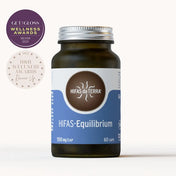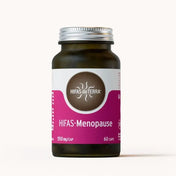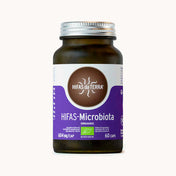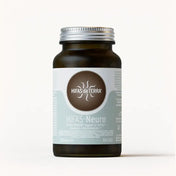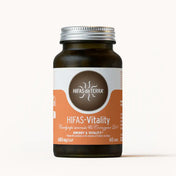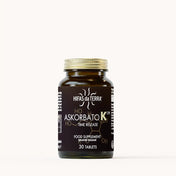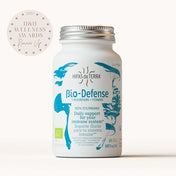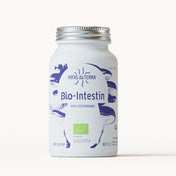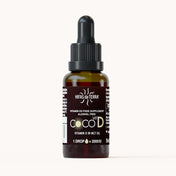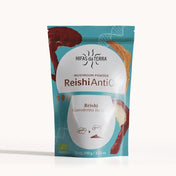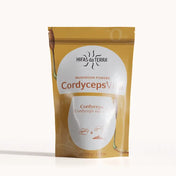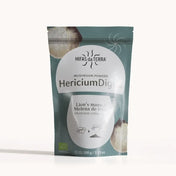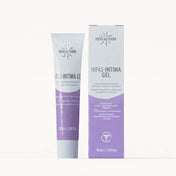
Galician companies
Hifas da Terra,
Cuevas and Cía and
Algamar The project starts
Neurofood, an R&D initiative with which they will develop
functional foods and
Food accessories from Galician foods of high nutritional value such as
Medicinal fungi, the
chestnuts and the
algae. These have already verified the presence of certain triterpenoid compounds, vitamins, minerals and other essential nutrients that could influence aspects related to
neurocognitive development And, specifically, with the
perception,
memory, the
attention and the
learning.
Representatives of the Business Consortium
They presented the global objectives and the phases of the Neurofood project in the presentation act held at the headquarters of the
Foltra Foundation In Teo (A Coruña). As explained, this project will be selected
"Ingredients of interest", they will develop
«Specific processes» and will be evaluated «
Complex matrices » that prevent compounds from losing qualities in productive processes. Neurofood is a
«Integral project» Well, after the research phases, the development of
specific products and its functional validation in healthy individuals and patients, both early and advanced.
Hifas da Terra
He
Dr. Rodríguez Blanco, responsible for health projects in Hifas da Terra, He explained that European agencies have already expressed concern about malnutrition in the elderly through
Calls within the framework of the program Horizon 2020. While malnutrition in children's ages can have observable consequences subsequently, in the elderly a deficit or inadequate diet could have repercussions at the neurocognitive level. "As an example, vitamin B1 deficiencies in the diet of a pediatric patient translate into observable anomalies in magnetic resonance," he added.
As he recalled, the general public frequently speaks of the importance of diet in cardiovascular disease prevention, but
"There is no degree of awareness about nutritional implications in cognitive deterioration or dementia". The Rotterdam study, published in the 90s, showed that a diet rich in saturated fats, cholesterol, total fat, etc. It has a "negative impact" on the risk of dementia, while a diet rich in unsaturated acids such as Omega 3 and Omega 6 is "inversely proportional" to the risk of dementia.
León, Shiitake and Reishi hair
In the Neurofood project they will be used
Galician resources of “great nutritional value · as mushrooms, chestnuts and algae They have already known compounds and on which Hifas da Terra has been working for years. These include the
alpha-linoleic acid, l
A vitamin d and
Vitamin B12. The
Biotech Applied mycology will work with "interests of cognitive level" as the
León hair, he
Shiitake and the
Reishi; Some of which have shown "positive results" in neurological diseases.
The
Cuevas and Company Manager, Maite González, influenced the idea of developing, as the final objective of the project, a
«Stable and bioavible functional food». As noted, "as ambassadors of the Galician chestnut in the world present in 26 countries," the dissemination of the benefits of the chestnut is part of its mission.
Neurofood phases: 2018-2020
The Neurofood project, which will take place until 2020, is located in its
Initial phase. After defining the final product collectively, they are
Selecting the subjects, the "sources of suitable active compounds" for the product with the "essential nutrients and adequate bioactive compounds." Entities like the
University of Santiago de Compostela (USC), the
University of Vigo (Uvigo),
ANFACO-CECOPESCA and the
TECHNOLOXIC CENTER gives meat They will collaborate in the successive phases of the project collecting scientific evidence of the effects of the products and contributing their experience in the field of R&D. Likewise, the final validation of the product will be obtained from the protocols implemented by the
Foltra Foundation, which will offer "valuable information" for the commercial future of the product formulated for the correct neurocognitive functioning.
Cuevas and Cía
According to Maite González, the different stages of the project include biomolecules analysis, both in raw materials and in the final product; Compatibility studies of the different matrices and concentration ratios; Compatibility, bioavailability and useful studies; as well as tastings and sensory panels that allow demonstrating "maximum organoleptic acceptability."
One of the departure premises for the elaboration of the product resulting from Neurofood is to be framed in the "healthy" concept; A matter that would be determined, according to Maite González, for having a low glycemic index, being balanced nutritionally and easy to swallow, natural, ecological and without preservatives or dyes.
The spokeswoman for the Cuevas Group did not rule out, once the project was finished, the possibility that the consortium develops a new range of products "more oriented to the health branch."
Algamar
For its part, the
co -founder Algamar, Fermín Fernández Sáa, highlighted the fact that through this project the development of
«Products of interest to health with Galician Products of Kilometer Zero». Algamar is defined as one of the first companies that opted for seaweed for food purposes. Of their nutritional aspects, they highlighted their high protein content, their "high antioxidant capacity" and what they called as a "nutrient cocktail."
Sergio Baamonde López, biologist and R&D member in Algamar, He indicated that they will investigate which species of algae are the most suitable for the final product and by which extraction processes the quantity and quality of its bioactive compounds can be optimized; activities that will develop in collaboration with
«High impact researchers» of the University of Vigo and EThe Portugal Polytechnic Institute (IPB) of Portugal.
Neurofood is an R&D project that is financed by the Galician innovation AXENCY (GAIN) through the Connecta-Peme 2018 program (European Regional Development Fund) and has the support of the Ministry of Economics and Industry of the Xunta de Galicia and the Galician Company-University Foundation (Feuga).
 Galician companies Hifas da Terra, Cuevas and Cía and Algamar The project starts Neurofood, an R&D initiative with which they will develop functional foods and Food accessories from Galician foods of high nutritional value such as Medicinal fungi, the chestnuts and the algae. These have already verified the presence of certain triterpenoid compounds, vitamins, minerals and other essential nutrients that could influence aspects related to neurocognitive development And, specifically, with the perception, memory, the attention and the learning.
Representatives of the Business Consortium They presented the global objectives and the phases of the Neurofood project in the presentation act held at the headquarters of the Foltra Foundation In Teo (A Coruña). As explained, this project will be selected "Ingredients of interest", they will develop «Specific processes» and will be evaluated «Complex matrices » that prevent compounds from losing qualities in productive processes. Neurofood is a «Integral project» Well, after the research phases, the development of specific products and its functional validation in healthy individuals and patients, both early and advanced.
Galician companies Hifas da Terra, Cuevas and Cía and Algamar The project starts Neurofood, an R&D initiative with which they will develop functional foods and Food accessories from Galician foods of high nutritional value such as Medicinal fungi, the chestnuts and the algae. These have already verified the presence of certain triterpenoid compounds, vitamins, minerals and other essential nutrients that could influence aspects related to neurocognitive development And, specifically, with the perception, memory, the attention and the learning.
Representatives of the Business Consortium They presented the global objectives and the phases of the Neurofood project in the presentation act held at the headquarters of the Foltra Foundation In Teo (A Coruña). As explained, this project will be selected "Ingredients of interest", they will develop «Specific processes» and will be evaluated «Complex matrices » that prevent compounds from losing qualities in productive processes. Neurofood is a «Integral project» Well, after the research phases, the development of specific products and its functional validation in healthy individuals and patients, both early and advanced.

 Galician companies Hifas da Terra, Cuevas and Cía and Algamar The project starts Neurofood, an R&D initiative with which they will develop functional foods and Food accessories from Galician foods of high nutritional value such as Medicinal fungi, the chestnuts and the algae. These have already verified the presence of certain triterpenoid compounds, vitamins, minerals and other essential nutrients that could influence aspects related to neurocognitive development And, specifically, with the perception, memory, the attention and the learning.
Representatives of the Business Consortium They presented the global objectives and the phases of the Neurofood project in the presentation act held at the headquarters of the Foltra Foundation In Teo (A Coruña). As explained, this project will be selected "Ingredients of interest", they will develop «Specific processes» and will be evaluated «Complex matrices » that prevent compounds from losing qualities in productive processes. Neurofood is a «Integral project» Well, after the research phases, the development of specific products and its functional validation in healthy individuals and patients, both early and advanced.
Galician companies Hifas da Terra, Cuevas and Cía and Algamar The project starts Neurofood, an R&D initiative with which they will develop functional foods and Food accessories from Galician foods of high nutritional value such as Medicinal fungi, the chestnuts and the algae. These have already verified the presence of certain triterpenoid compounds, vitamins, minerals and other essential nutrients that could influence aspects related to neurocognitive development And, specifically, with the perception, memory, the attention and the learning.
Representatives of the Business Consortium They presented the global objectives and the phases of the Neurofood project in the presentation act held at the headquarters of the Foltra Foundation In Teo (A Coruña). As explained, this project will be selected "Ingredients of interest", they will develop «Specific processes» and will be evaluated «Complex matrices » that prevent compounds from losing qualities in productive processes. Neurofood is a «Integral project» Well, after the research phases, the development of specific products and its functional validation in healthy individuals and patients, both early and advanced.

